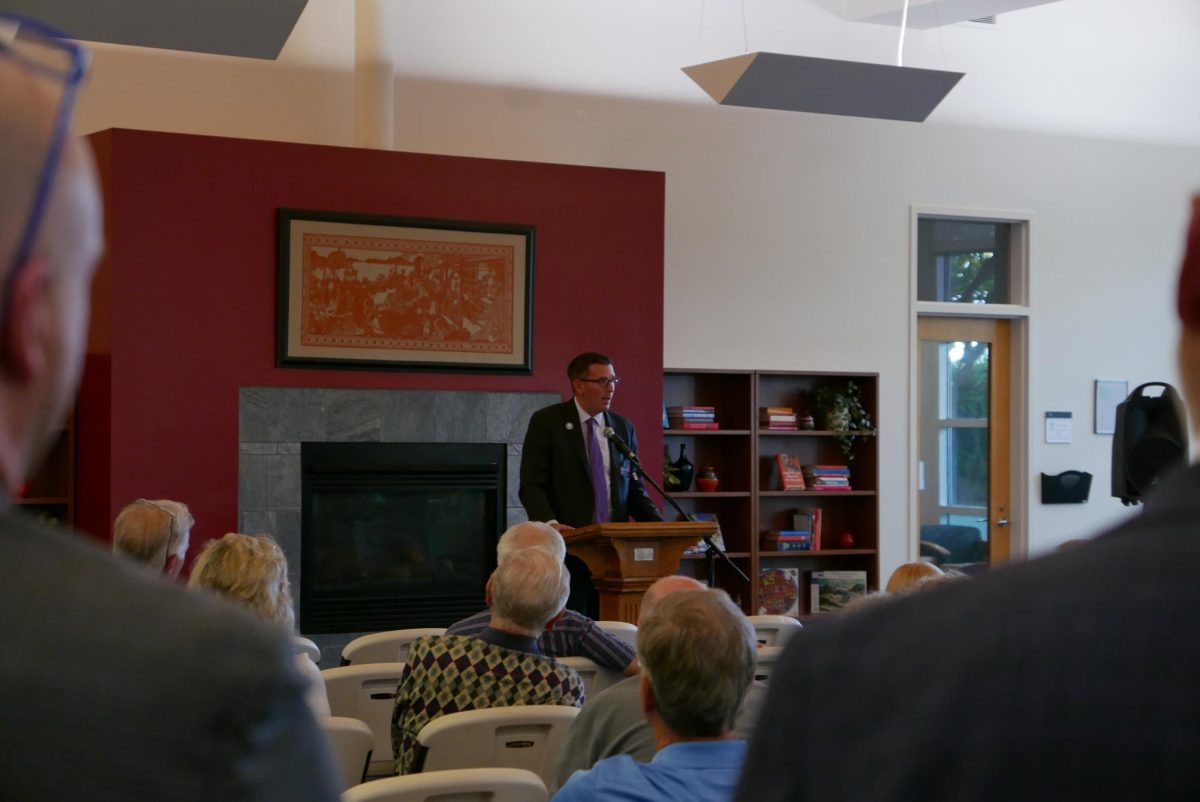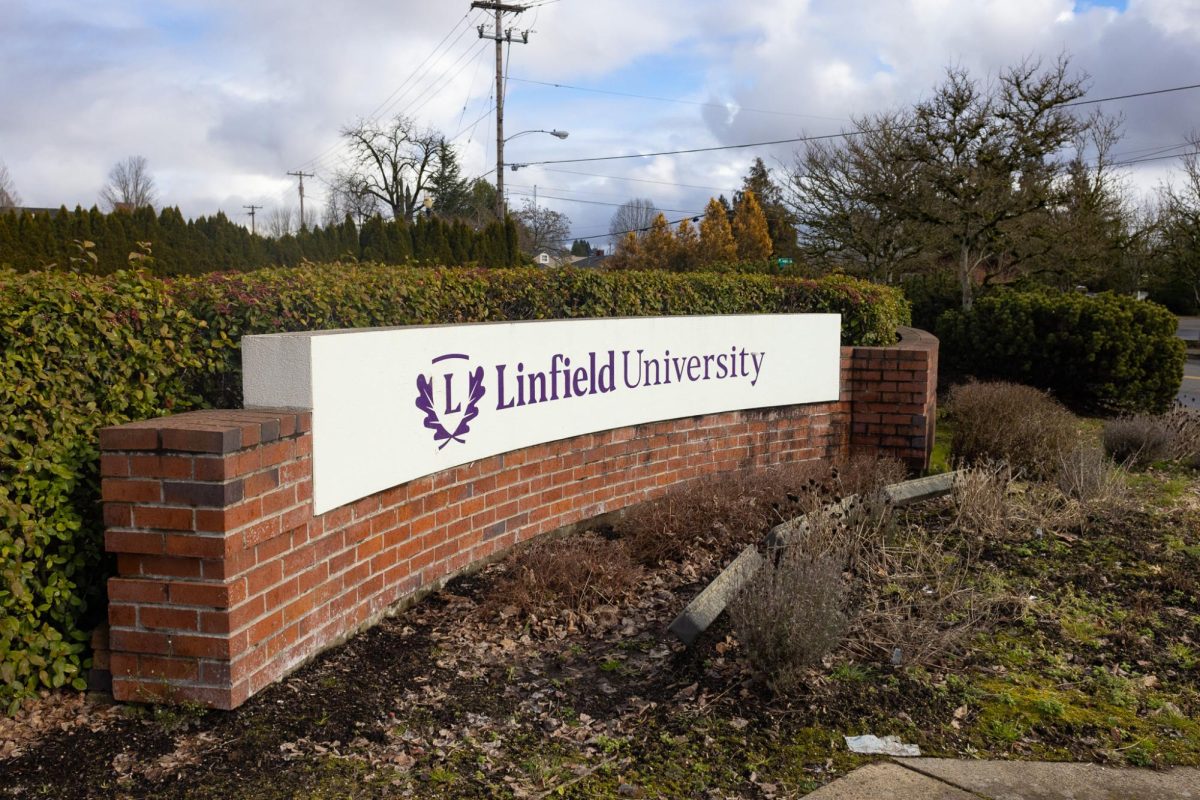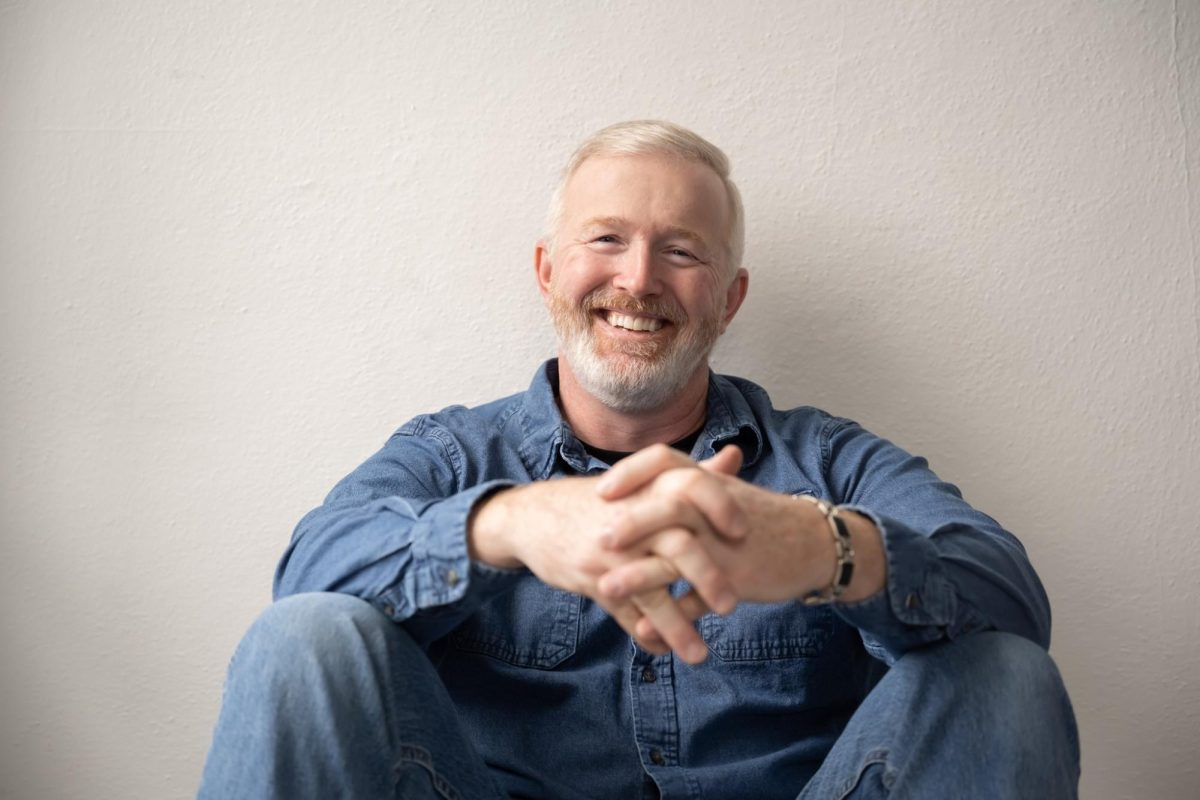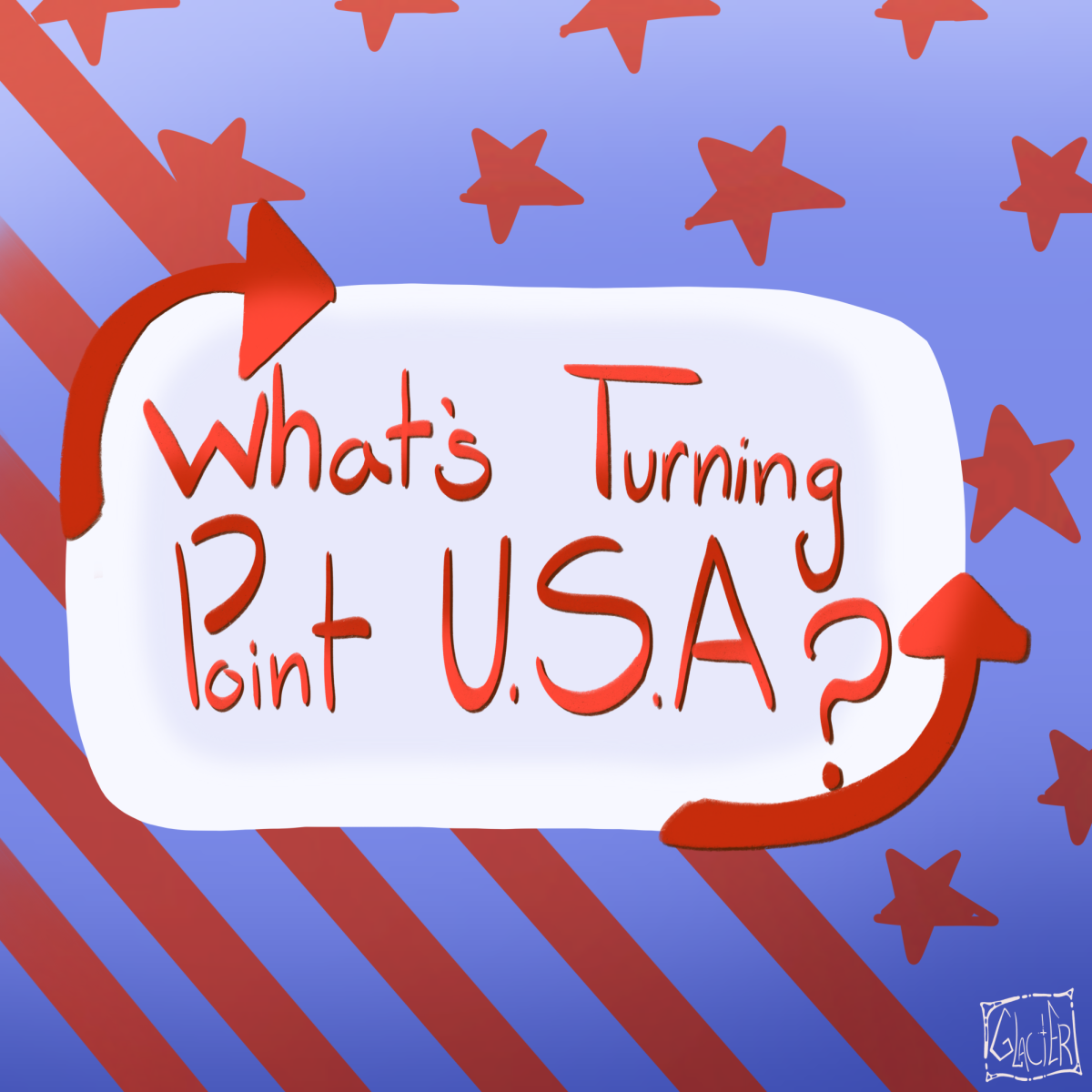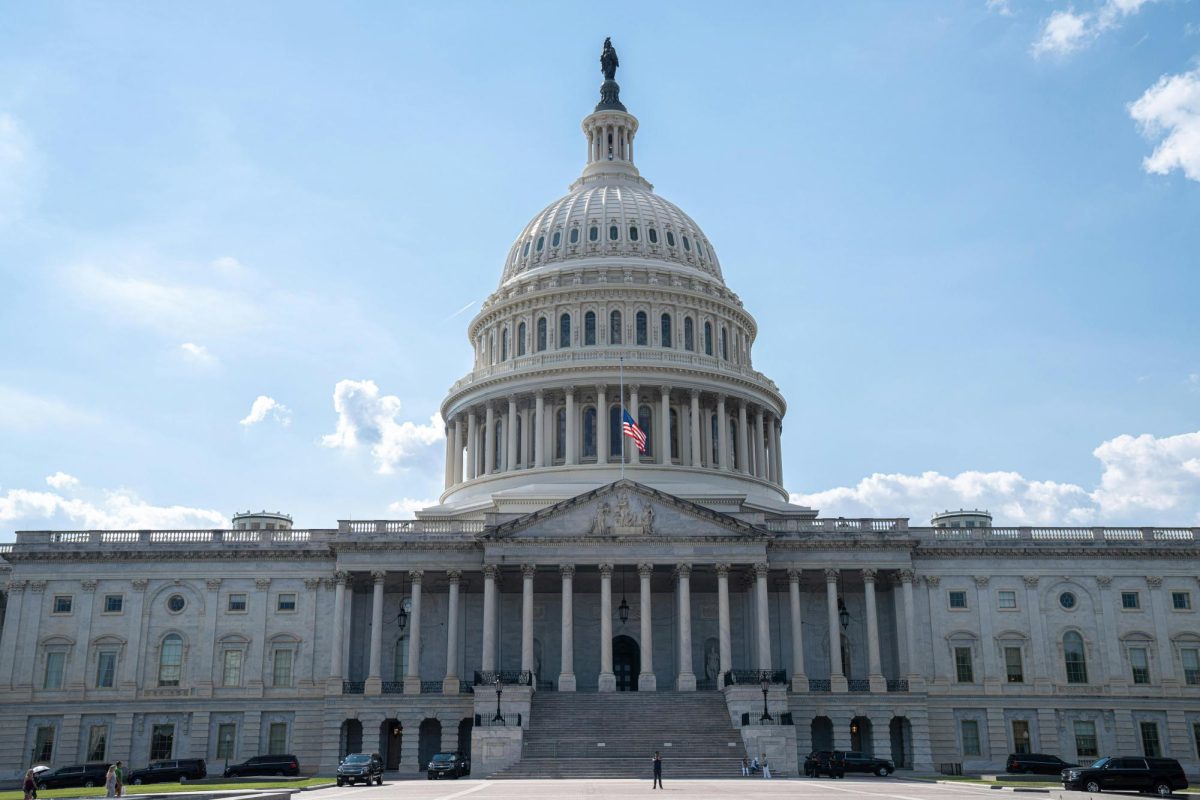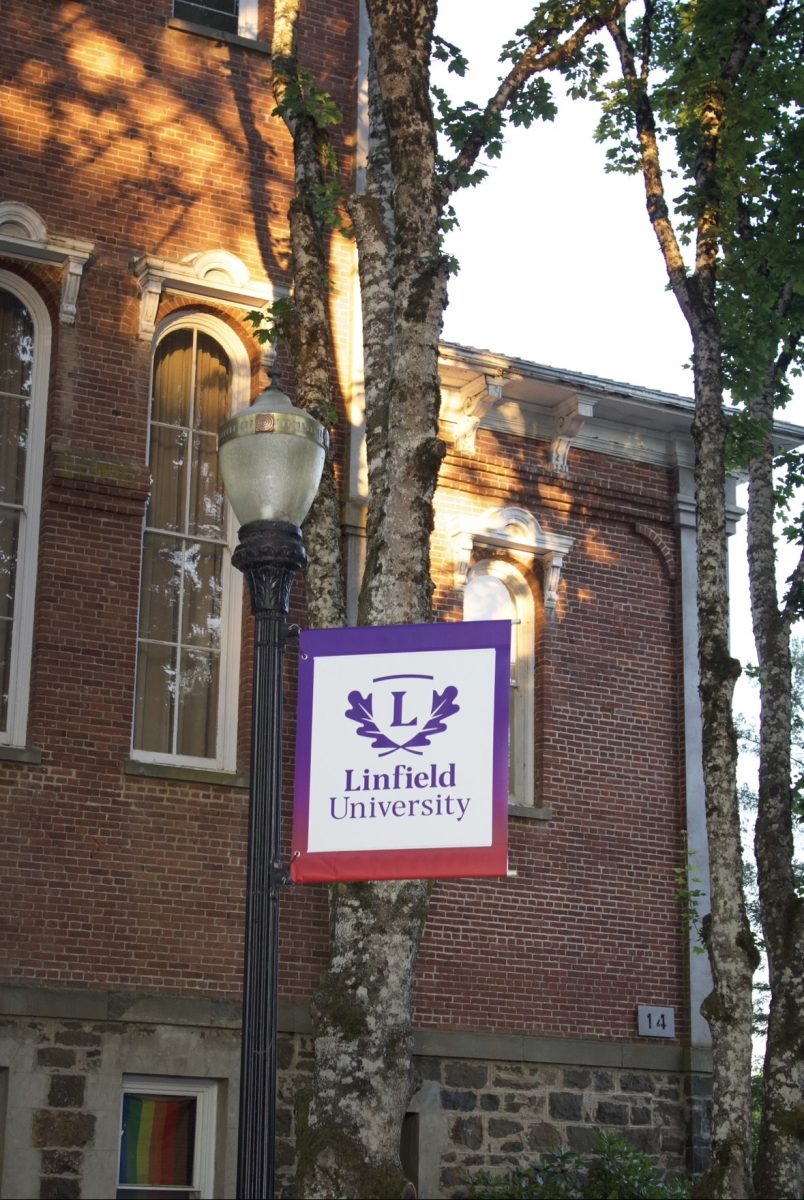With a maximum capacity crowd present, three professionals delivered their varying points of view on gun violence and what should be done about it. Students from the Law, Rights and Justice class taught by Nicholas Buccola, assistant professor of political science, among many others, gathered for the luncheon panel on March 19.
Penny Okamoto, executive director of Ceasefire Oregon, Chris Bouneff, executive director of The National Alliance on Mental Illness of Oregon, and James Huffman, a constitutional law professor from Lewis and Clark Law School, all presented their positions on gun rights and legislation.
In the context of the tragic shootings last fall and the recent legislation in January, gun violence has been a hot topic in classes like Buccola’s. In this class, students argue about various legal controversies and participate in a moral court, with two contrasting sides and judges, to learn how to form objective and constructive arguments.
The students applied what they learned in class to the discussion with the panel of professionals.
“My sense from the students was that the panel was helpful in terms of thinking of the issues, but they also had a chance to see other people forming arguments on behalf of the issue,” Buccola said. “Using the way we argue about these things and what kinds of appeals to reason and emotions are used, we figure out ways to be critical listeners. Students applied logical fallacies to the speakers’ arguments, from what they learned in class. They’ll be writing their papers on it next week.”
Buccola sent out a survey to his class to see what students wanted to argue about. He incorporated the issue of gun rights into his class and then created events linked to what was talked about. These events are part of Linfield’s Douglass Forum, which is dedicated to promoting discussion and debate about law, individual rights and different, competing ideas of justice.
The gun violence panel was in a traditional debate format. The question posed to the panel was what Oregon should do about gun violence, similar to congressional hearings.
“[Okamoto]’s big thing is that Ceasefire Oregon’s agenda is not to abolish gun rights or take guns away from responsible people, but to figure out how to regulate guns in a way that makes sense,” Buccola said. “I suspected Huffman would be on the more conservative side of the issue.”
Buccola thought that Bouneff would provide an interesting voice to the argument. Bouneff was partially reluctant at first, Buccola said. The mental illness advocacy community is put in an uncomfortable position with the gun rights controversy.
“On one hand, it’s good for the lack of funding for mental illness because it’s getting more attention,” he said. “But on the other hand, the mental health advocacy community doesn’t want mental illness to be associated with violence. [Bouneff] really emphasized not marginalizing mentally ill people and not making assumptions about proclivities toward violence.”
Huffman framed constitutional questions associated with gun control and tried to give the crowd a sense of other constitutional issues. Buccola said that during the Q-and-A session, he adopted more of an advocacy role for gun rights.
Most of the students were in the middle with their opinions of what to do about gun violence. Instead of coming to a conclusion about what to do, students were left with plenty to think about and discuss.
“I don’t know that a resolution was reached. One thing that wasn’t clear by the end was how somebody like Huffman felt about various regulations that Okamoto was defending,” Buccola said. “Huffman staked out a robust and philosophical position of individual rights to own a gun. But it wasn’t clear how that would apply to regulations Okamoto discussed.”
Kelsey Sutton/Managing editor
Kelsey Sutton can be reached at l[email protected].

